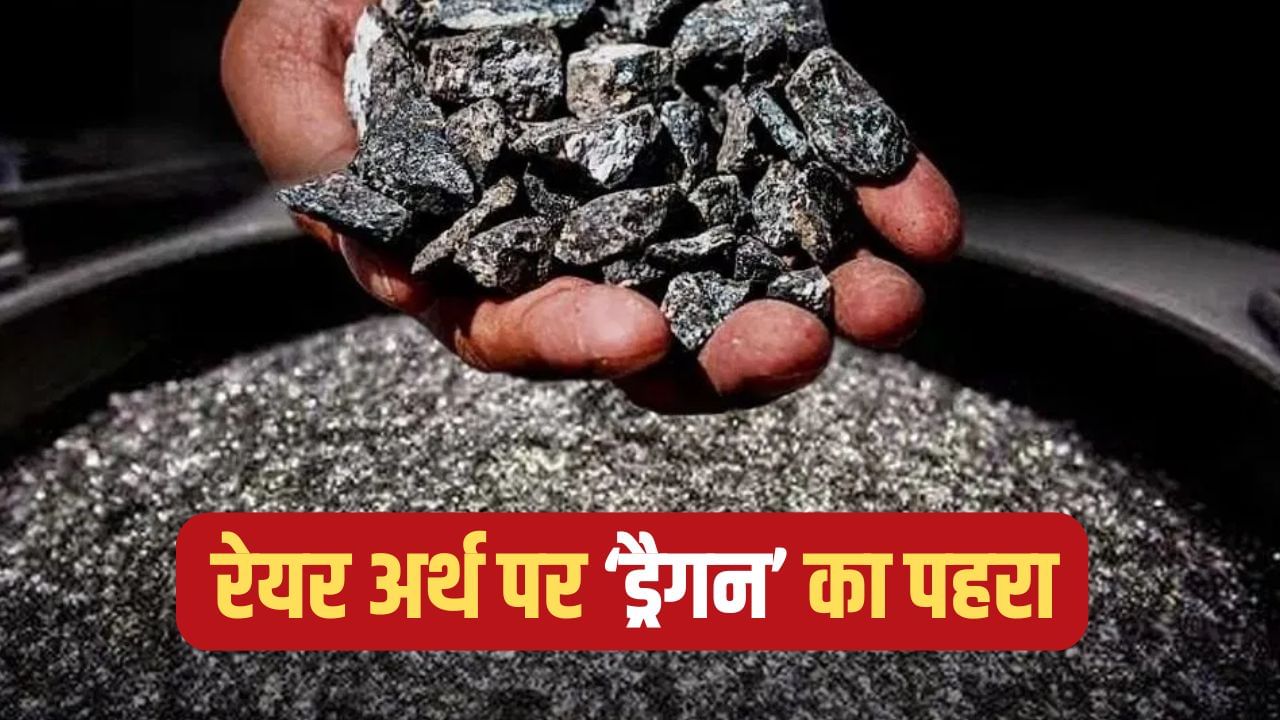China has the maximum control over rare earths.
The Indian government’s ₹7,300 crore scheme, which aims to promote local production of rare earth minerals and magnets in the country, may now run into trouble. The reason for this is the export restrictions imposed by China, which ban the export of equipment that is necessary to process these minerals and make essential components in high-tech industries.
Countries like Germany and Japan have the necessary technology and equipment to process these rare minerals, but they are very expensive compared to China. China is the world’s leading country in this field. According to the International Energy Agency (IEA), China accounts for 61% of global production and 92% of processing. Rare earth magnets are vital components for many high-tech products such as electric vehicles (EVs), consumer electronics, wind turbines and industrial machines.
that’s why the problem arose
A media report quoted a senior official of the auto industry as saying that China’s Ministry of Commerce has recently issued a notification, under which export control has also been imposed on rare earth production and processing equipment, raw and auxiliary materials. This may affect the new scheme of the Government of India, which has been brought to encourage the manufacturing of rare earth magnets at the local level.
China’s new export rules
Earlier this month, China’s Bureau of Security and Control announced that export controls would be imposed on rare earth production and processing equipment. Companies exporting these items will now have to apply for a special license and also state whether the equipment can be used for both civilian and military purposes.
Also read- China’s downfall is certain in the game of rare earth, India gets big treasure!
India’s challenge
The media report quoted another industry expert as saying that the Indian government has been working on a plan to become self-reliant in the production of rare earth magnets for a long time, but the real challenge is that both the necessary technology and equipment are under the control of China. If the equipment is purchased from Germany or Japan, the cost will increase significantly and the economic feasibility of the projects will be affected.
Big plan gets green signal
Earlier this month, the Expenditure Finance Committee (EFC) has approved this incentive scheme. Its objective is to provide both capital and operational expenses to companies who want to set up rare earth magnet processing units and supply chains in India. ₹6,500 crore has been kept for capital expenditure. ₹800 crore has been earmarked for operational expenditure. This plan will soon be sent to the Cabinet for approval.
screw stuck here
These new restrictions of China are different from the controls which it had imposed earlier on April 4. At that time, China had imposed export restrictions on products related to medium and heavy rare earths, saying the purpose was to protect national security. This step was taken in response to the retaliatory tariffs imposed by US President Donald Trump. Before exporting any rare earth product, companies have to obtain a license from the Ministry of Commerce of China. Besides, they also have to give a certificate that these items will not be used in the manufacturing of any type of weapon or their delivery system.
